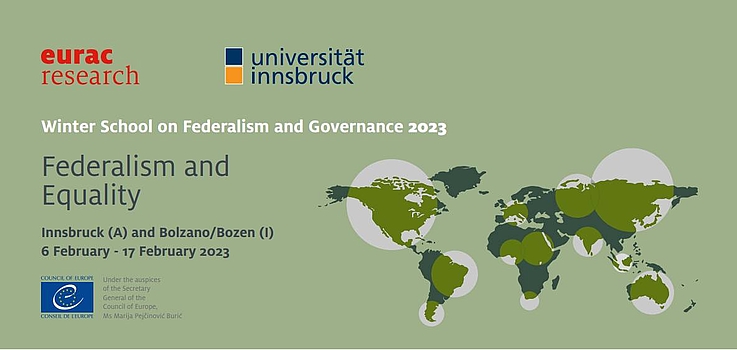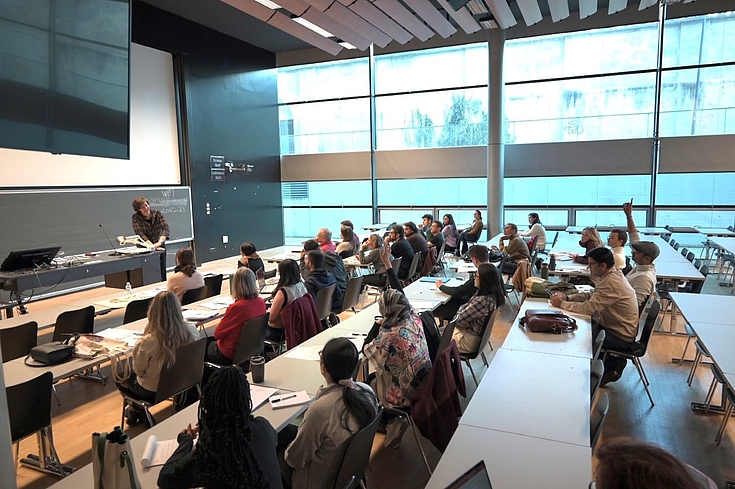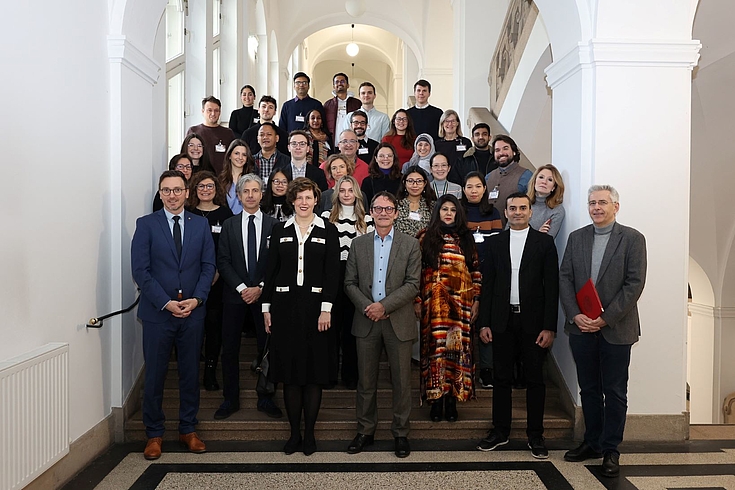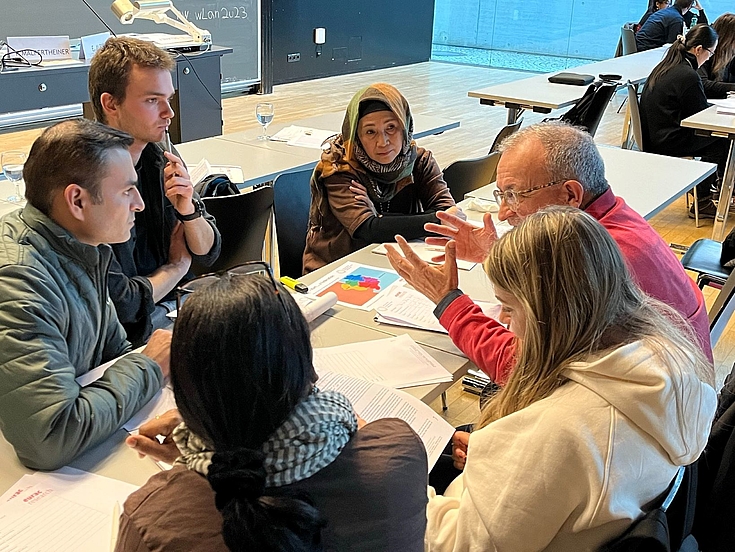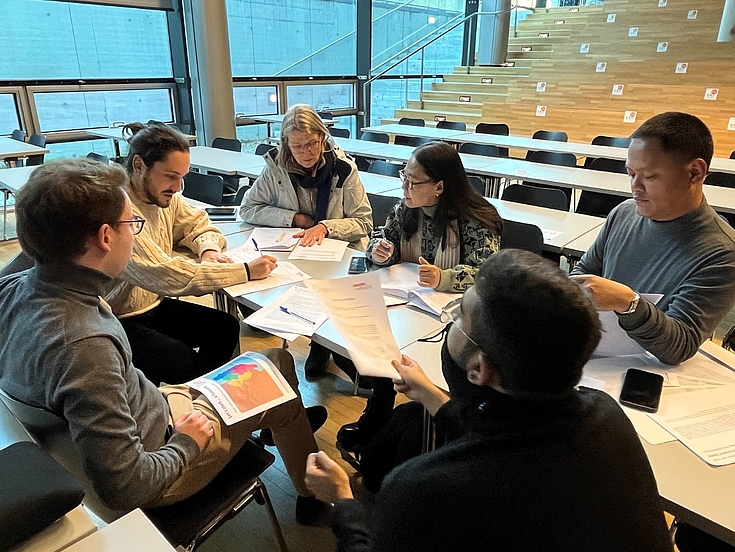Federalism and Equality
PH participants join program examining multi-layered systems in relation to equality
EURAC
The main objective is for the participants to gain broader and deeper analyses of the relation between multilevel systems and the principle of equality, including the exploration of constitutional provisions with regard to equality and the discussion of symmetric and asymmetric federalism. Participants have the chance to increase their understanding of multilevel governance and government through a variety of lectures, particularly from the perspectives of the legal and political sciences. The Winter School's worldwide learning environment features top experts and academics teaching courses and leading workshops on federalism and its difficulties from all over the world. Upon completing the program, the two participants from the Philippines can contribute to promoting public awareness and understanding on federalism and a system of government best suited to the Philippine context.
Does the principle of equality as a fundamental right stand in the way of federalism? What do institutional, economic, cultural and other asymmetries reveal about equality? Participants in this two-week program, themed “Federalism and Equality” this 2023, examined how multilevel systems and the equality principle relate to one another. They also looked at how territorial differences affected multilevel systems and how subnational units are represented. The range of interactive sessions provided them with the opportunity to contribute their knowledge and experience, and for deliberation with experts on multilevel governance throughout the lectures, workshops, question-and-answer sessions, and a round-table discussion about multilevel systems from several continents.
EURAC
The curriculum also examined how multilevel structures may promote or impede territorial, group, and individual equality, and offered insights into issues such as indigenous rights, minorities in multilevel systems, and segregation and desegregation in the USA, amongst others. The function of autonomous regions in Italy and in South Tyrol were also covered. In the extensive exchanges, the experts and the participants discussed the relationship between federalism and equality in developing and established federations, as well as in “coming-together” federations. In-depth workshops on (in)equalities in relation to the economy, social issues, surroundings, and institutions were also held.
The Winter School on Federalism and Governance is a two-week international postgraduate program on multilevel government, federalism, and regionalism. It is a shared project of the Eurac Research’s Institute for Comparative Federalism and the University of Innsbruck Faculty of Law and Faculty of Social and Political Sciences. The Council of Europe Secretary General has been hosting the program since its inaugural edition in 2010. The program investigates how federalism might support multilevel, integrative, and pluralistic decision-making from an interdisciplinary and comparative standpoint.
The Winter School on Federalism and Governance usually takes place in Bolzano/Bozen, Italy, and Innsbruck, Austria, both of which are described as interesting international study environments. Held entirely in English, its customary activities are public lectures, interactive workshops, case studies, expert discussions, study tours to political institutions, and lectures by eminent academics.
The participants, whom the program assumes are familiar with federalism, usually comprise young scholars and researchers; postdocs, graduate students, and postgraduates; employees of the municipal, regional, or federal government; and, staff of non-governmental/international organisations.
HSF
Overall, the two Philippine representatives conveyed great appreciation for the in-depth discussions and exchanges on both general and specific aspects of federalism and multilevel governance with experts and fellow participants, who were mostly practitioners, academics, and civil servants.
Professor Melba M. Angni, Special Faculty Assistant/Focal Person on Internationalisation, Linkages and Innovation, Mindanao State University (MSU) remarked, “The Winter School Program 2023 was a realization that different countries face different types of challenges on Social Inequalities. The sharing and exchange of ideas shared by the speakers and the participants was a great way to dissect cases and identify key points that needs to be addressed when talking about leadership and governance.”
“The Winter School Program 2023 was a realization that different countries face different types of challenges on Social Inequalities. The sharing and exchange of ideas shared by the speakers and the participants was a great way to dissect cases and identify key points that needs to be addressed when talking about leadership and governance.”
Professor Melba M. Angni, Special Faculty Assistant/Focal Person on Internationalisation, Linkages and Innovation, Mindanao State University (MSU)
HSF
‘There is much to be digested in this winter school. … I see a parallelism between their special regions in Italy and the special regions of the Bangsa Moro and the Cordillera in the Philippines. … [R]ather than jump right away to federalism which entails so much energy and resources, the building blocks can be highlighted first, like … the special regions … which the Italians refer to as elements of “quasi-federalism.” The sessions here [widen] the horizon in discussing … federalism,’ observed Atty. Elmar Jay Martin I. Dejaresco, Corporate Secretary of the Pimentel Institute for Leadership and Governance (PILG). He added, “My experience in the in the Eurac's 2023 Winter School on Federalism and Equality widened my horizons on the relevance and applicability of the many facets of federalism in governance that would help uplift peoples' lives.”
Upon completing the program, they are to join the pool of core group members/experts organised by the Pimentel Institute for Leadership and Governance (PILG). Equipped with increased knowledge on federalism, these core group members can help in the further dissemination of salient features and principles on federalism, promoting public awareness and understanding on the topic and on the form of governance that is best suited to the Philippine context.
“My experience in the in the Eurac's 2023 Winter School on Federalism and Equality widened my horizons on the relevance and applicability of the many facets of federalism in governance that would help uplift peoples' lives.”
Atty. Elmar Jay Martin I. Dejaresco, Corporate Secretary, Pimentel Institute for Leadership and Governance (PILG)
They expressed remarkable anticipation for the sharing of their insights in the seminar series, “Federalism 101” planned to be held in collaboration with state universities in Mindanao for academia in the first half of 2023.
The two Philippine representatives’ participation in this 2023 Edition of the Winter School Federalism and Governance Program was made possible through the support of the Hanns Seidel Foundation (HSF) in partnership with the Pimentel Institute for Leadership and Governance (PILG) as part of the project “Increasing Awareness of the General Public on Federalism and Decentralisation.” To date, this partnership, which began in 2016, has supported the participation of a total of twelve delegates from the Philippines in the EURAC Research Winter School on Federalism and Governance Editions from 2017 to 2020 and in 2023 held in Austria and in Italy; and, in 2022, online.

